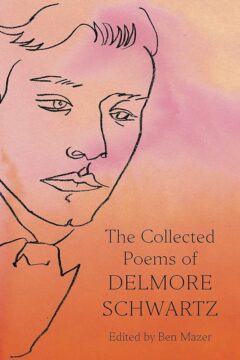R. K. Hegelman at Poetry Magazine:
 When Schwartz comes up in conversation today, two things are typically remarked of him. First, he is a man whose reputation has eclipsed his work, his stature as a poet having surrendered to the clamor for myth. Second, this myth is one of vertiginous and scandalous decline. Delmore Schwartz: an American tragedy. Both commonplaces have the unfortunate merit of being true.
When Schwartz comes up in conversation today, two things are typically remarked of him. First, he is a man whose reputation has eclipsed his work, his stature as a poet having surrendered to the clamor for myth. Second, this myth is one of vertiginous and scandalous decline. Delmore Schwartz: an American tragedy. Both commonplaces have the unfortunate merit of being true.
His biography easily lends itself to historical synecdoche: his star rose amidst the New Deal optimism of the 1930s, his decline was contiguous with the conflagrations of the 1940s, and his irrelevance was assumed by the sanitized postwar culture of the 1950s. That a man’s work may become an appendix to the idea of him is exacerbated in Schwartz’s case by the fact that he was at the epicenter of a golden era of American intellectual life—as an editor of Partisan Review, as a prolific critic and teacher, as a prodigious wit, and as an unflagging hobnobber, gossip, politicker, and squabbler.
more here.
